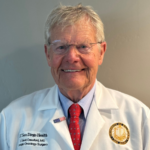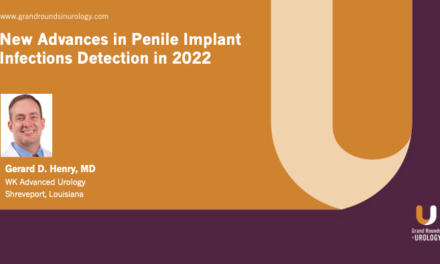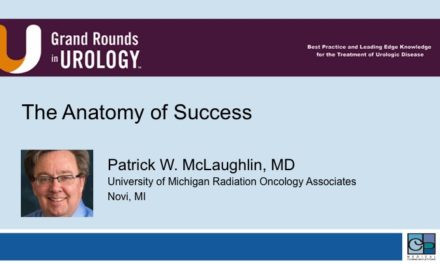E. David Crawford, MD, presented “Early Detection of Prostate Cancer: Navigating the Challenges in 2021” during the virtual 5th Global Summit on Precision Diagnosis and Treatment of Prostate Cancer in September 2021.
How to cite: Crawford, E. David. “Early Detection of Prostate Cancer: Navigating the Challenges in 2021.” September 2021. Accessed Jan 2026. https://grandroundsinurology.com/early-detection-of-prostate-cancer-navigating-the-challenges-in-2021/
Early Detection of Prostate Cancer: Navigating the Challenges in 2021
E. David Crawford, MD, Editor-in-Chief of Grand Rounds in Urology and Professor of Urology at the University of California, San Diego, discusses the challenges of early detection of prostate cancer (PCa) and recommends a prostate-specific antigen (PSA) cut-off of 1.5 ng/ml. He begins by briefly summarizing different screening guidelines, noting particularly that the United States Preventive Services Task Force (USPSTF) has raised concerns about PCa early detection, asserting that there is too much overtreatment. Dr. Crawford argues, however, that evidence shows that a reduction in PSA screening resulted in a rise in metastatic prostate cancer across the United States. Because most diagnostic testing is completed by family practice physicians who may not understand the nuances of PSA testing, Dr. Crawford recognizes that they need a simple message from urologists. He states that a PSA of >1.5 ng/ml is a good surrogate for benign prostatic hyperplasia (BPH), PCa, and PCa risk, and explains that patients with a PSA of 1.5 ng/ml to 4.0 ng/ml may be in a “danger zone” and require additional testing. Dr. Crawford contends that patients do not need to make an informed decision about getting a PSA test, and that PSA testing should be considered as routine as measuring a patient’s weight or cholesterol, especially since more than 70% of men will have a PSA of less than 1.5 and will not require further screening for another 5 to 10 years. He then explains that an abnormal PSA alone should not guide biopsy decisions, though, and suggests that using tests like 4Kscore and SelectMDx in conjunction with MRI can reduce unnecessary biopsies. Dr. Crawford concludes by reiterating the importance of simple messaging to move forward with effective screening and early detection of PCa.
The Virtual Global Summit on Precision Diagnosis and Treatment of Prostate Cancer brings together key international opinion leaders of every clinical subspecialty involved in patient care. This event is an integral part of the AdMeTech Foundation’s Annual Summit, which was established in 2016 and became seminal in shaping the state of the art and future vision for precision care. The goal of this event is three-fold: 1) Educating the key stakeholders; 2) Supporting a sustained cross-disciplinary dialogue and consensus on the best emerging clinical practices and research priorities; and 3) Expediting clinical adoption of promising novel diagnostics and therapeutics. For more educational activities from this virtual event, visit our collection page.
ABOUT THE AUTHOR
Researcher-physician E. David Crawford, MD, Jack A. Vickers Director of Prostate Research and Professor of Urology at the University of California, San Diego, has devoted his career in medicine to educating the public about men's health issues and finding effective techniques and procedures to address prostate cancer, the most common malignancy affecting men in the United States.





